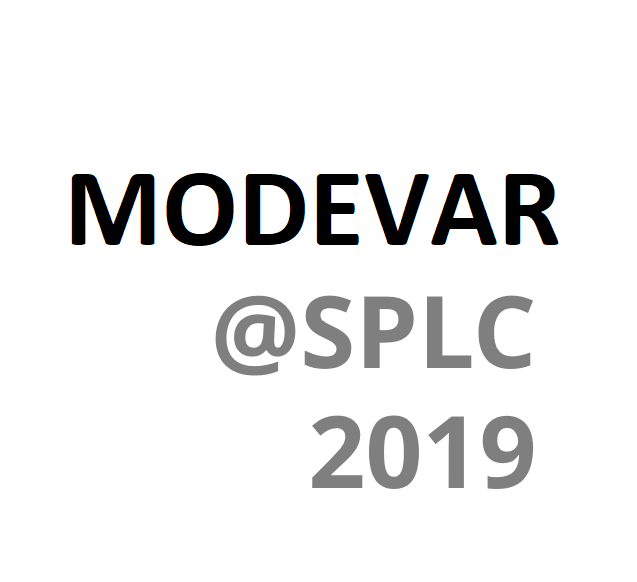Call for contributions
MOTIVATION AND GOALS
Feature models were invented in 1990 and have been recognised as one of the main contributions to the Software Product Line community. Although there have been several attempts to establish and study a sort of standard variability modelling language (OVM, CVL, TVL,..) there is still no consensus on a simple variability modelling language. As a community, we are missing such a simple, common variability modelling language. We cannot share easily our models and we cannot have a sort of universal model repository where we could post our outputs using a common notation. Other communities do have such kinds of languages such as CNF for SAT solving or XCSP for constraint programming for only mention a few. In this context, this workshop intends to join forces to make what could be an important contribution to the community. It will be necessary to try to reach a consensus on the modelling constructs and its syntax and have a big enough and representative consortium that supports the proposal. There can be many motivations, but the most important is: information (artefact) sharing among researchers, tools or developers. This first international workshop plans to be an interactive event where all participants shall share knowledge about how to build up a simple variability modelling language that all the community can agree on.
TOPICS
Topics include, but are not limited to the following topics related to variability modelling languages:
- Concepts: domain modelling, language constructs, mapping to other artefacts.
- Usages: writing, reading, generating, reverse engineering, (de-)composition, benchmarking.
- Tools: (collaborative) editing, stor-age/repositories, exchange, translation to other representations, analyses and testing.
- Analysing existing languages and ap-proaches: Feature Modelling, Decision Modelling, OVM, UML-based, KConfig, Delta-Oriented Modelling, CVL, TVL, etc.
For all of these topics, but particularly the last one, we envision papers summarizing existing concepts and approaches with the goal to identify what could/should be part of a common and simple variability modelling language that all the community can agree on. Papers could also just discuss ideas or even directly propose a simple variability modelling language including scenarios of its usage.
CONTRIBUTIONS
The main aim of this workshop is to work together towards a common, simple variability modelling language. We thus are not primarily looking for classical full research papers, but are mainly seeking for position and vision papers as well as (extended) abstracts describing ideas for presentation at the workshop. All submissions must follow the ACM Master Article Template and must not be longer than 8 pages. Use the following code in your LaTeX file:
\documentclass[sigconf]{acmart}
\acmConference[SPLC'19]{23rd International Systems and Software Product Line Conference}{9--13 September, 2019}{Paris, France}
Submissions will be selected for presentation and publication in the workshop proceedings based on the relevance to the workshop topics and the suitability to trigger discussions and help with the workshop goals. Papers should be submitted as PDF files via EasyChair
IMPORTANT DATES
| Action | Date |
|---|---|
| Paper Submission | May 28, 2019 |
| Paper Notification | Jun 18, 2019 |
| Final version | Jul 2, 2019 |
| MODEVAR in Paris | TBD |
Publication
SPLC workshop papers will be published in volume 2 of the SPLC conference proceedings published by ACM.
